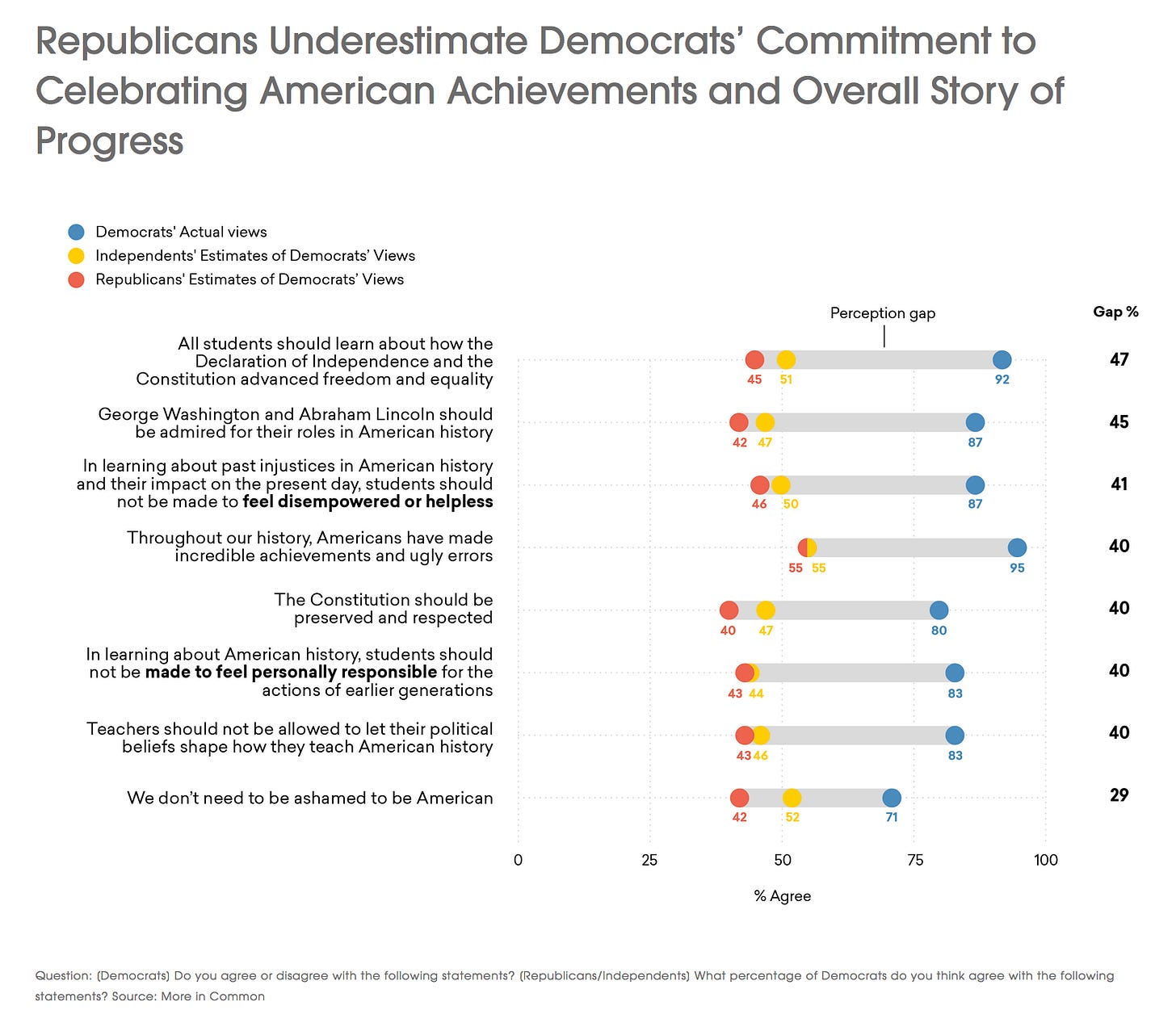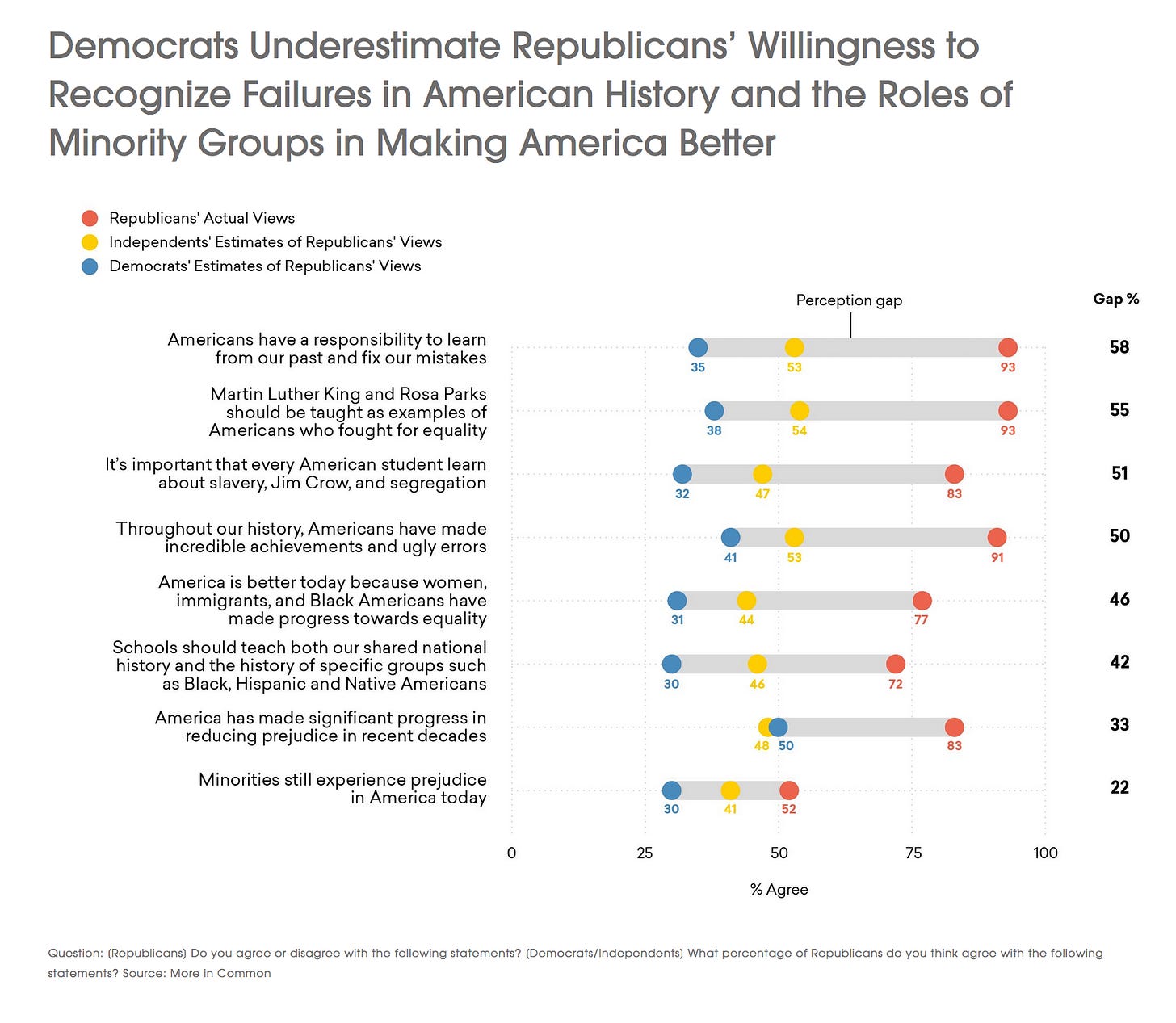If you’ve followed the headlines in recent years, it’s easy to think that Americans have never been more divided over how we teach and think about our history. Our public discussion has been dominated by passionate critiques and defenses of the 1619 Project and Critical Race Theory.
Working in the field of Civil War history for over two decades I am no stranger to debates over how our collective past is remembered, commemorated, taught, and interpreted. These disagreements are often exacerbated on social media, where the most extreme and bitter attacks are rewarded with likes and retweets.
Between the mainstream media and social media it is easy to end up trapped in a bubble of your own making that has little to do with reality.
While our educators are still dealing with the fallout, it appears that the wave of media attention on both Nikole Hannah-Jones and her 1619 Project as well as CRT has somewhat subsided. It suggests that these attacks and the focus generally were overwhelmingly political in nature.
Allowing the most extreme voices to define the terms of this debate has not only left us with the false belief that we have never been more divided over our history and history education, more importantly, it has created a perception gap between Democrats and Republicans.
That, at least, is the conclusion of a new poll conducted by More in Common. The study examined how Americans want history taught in schools as well as how people misjudge the opinions of others on the opposite side of the political spectrum.
For example, 83% of Democrats believe students should not be made to feel guilty or responsible for the sins of the past, but the study found that only 43% of Republicans think that Democrats hold that view..
Among some of the other findings:
92% of Democrats agree that all students should learn about how the Declaration of Independence and the Constitution advanced freedom and equality, but only 45% of republicans think Democrats hold that view.
93% of Republicans agree Americans have a responsibility to learn from our past, but only 35% of Democrats think Republicans hold that view.
72% of Republicans think schools should teach shared national history as well as the histories of specific groups such as Black, Hispanic and Native American people. However, only 30% of Democrats think that Republicans hold that opinion.
I highly recommend taking the time to read through the report. Its conclusions support a number of recent polls that indicate more substantial agreement between members of both political parties over a number of issues related to the teaching of American history, including how the history of race and slavery are taught.
Of course, this is not to suggest that there are no disagreements between how Americans from different political/ethnic/racial backgrounds think about the past and over how history should be taught. Disagreement, however, is not the enemy here. We can and should embrace the fact that there are legitimate disagreements over these issues.
What we need to work on is acknowledging and building on the common ground that exists throughout the country and resist the most extreme voices on both sides, whose interests in these debates extends little beyond their own selfish political/ideological ends.
Our students are depending on us.






I have wondered if it might be necessary- or at least important- to include the stories of benevolent, supportive White people when teaching about the things that were done against Black people in American history. I think this would be a good thing to do, but my concern with it is that the story of the White ally might become the focus, while the stories of enslaved people or segregated African Americans end up getting overshadowed.